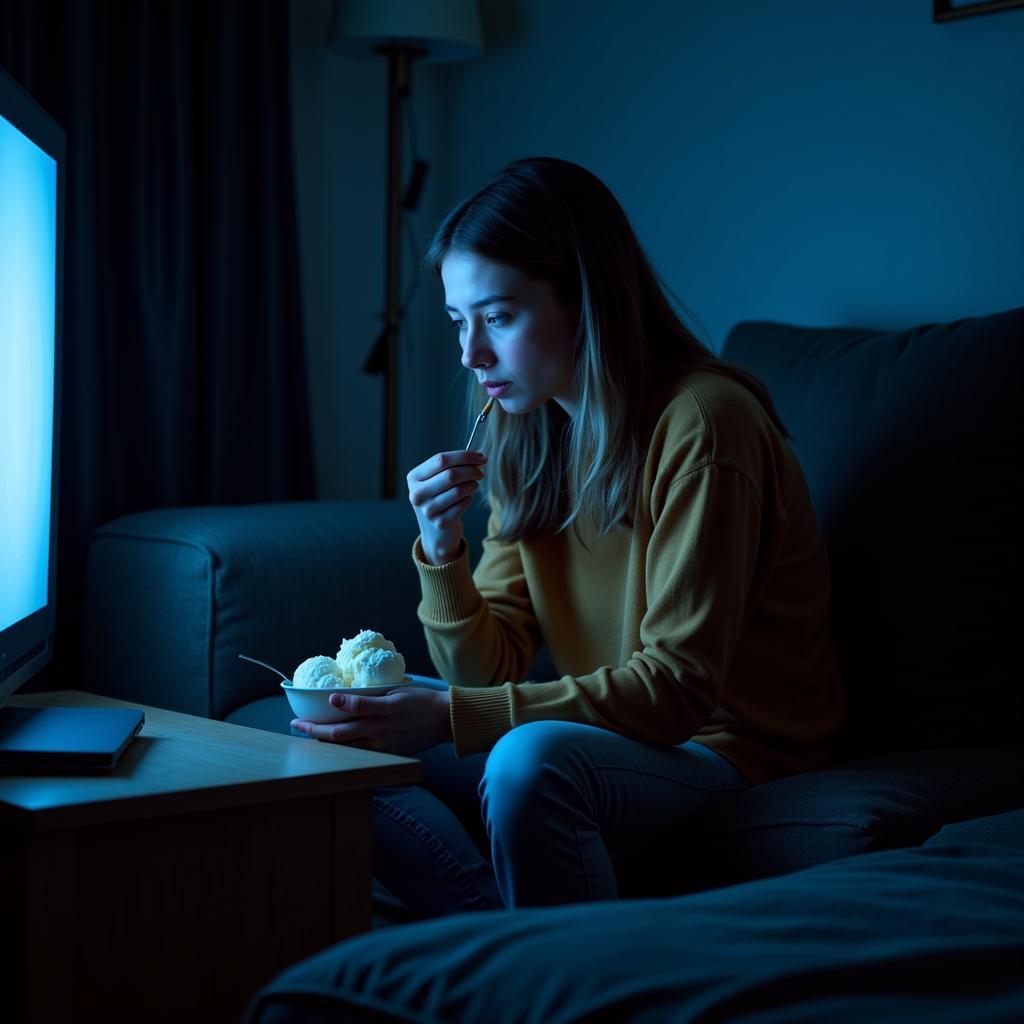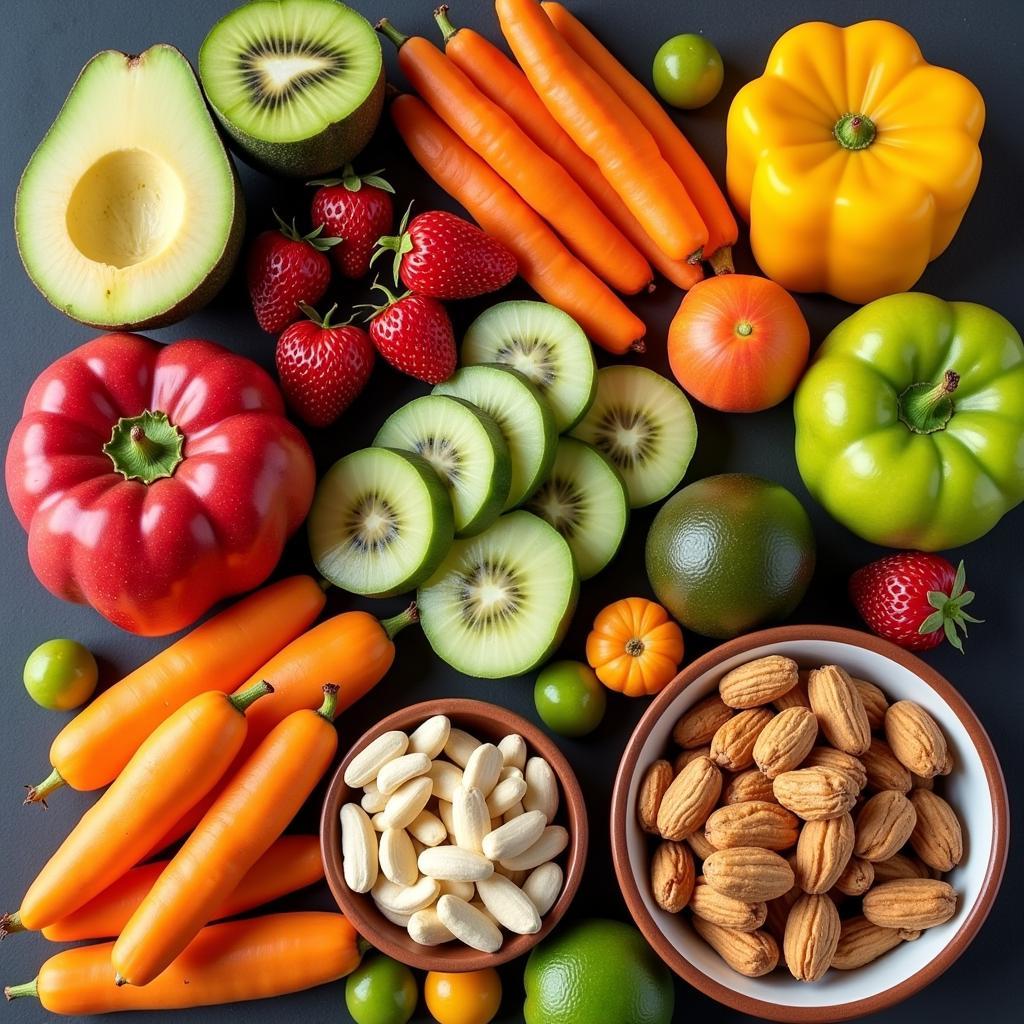We’ve all been there. The clock strikes twelve, and suddenly, you’re hit with an undeniable urge for a midnight snack. Those Midnight Desires can be powerful, leading you on a quest to satisfy your cravings no matter what. But what is it about the witching hour that seems to awaken our appetites?
 A person staring longingly into a refrigerator late at night
A person staring longingly into a refrigerator late at night
The Science Behind Midnight Desires
Our bodies operate on a natural sleep-wake cycle known as the circadian rhythm. This internal clock regulates various bodily functions, including our eating patterns. As night falls, our bodies produce less of the appetite-suppressing hormone leptin and more of the hunger-stimulating hormone ghrelin. This hormonal shift can lead to increased feelings of hunger, even if we’ve consumed enough calories throughout the day.
The Psychology of Late-Night Snacking
Beyond biology, psychological factors can also contribute to midnight desires. Stress, boredom, and loneliness can trigger emotional eating, leading us to seek comfort in food. Late-night snacking can become a way to cope with negative emotions, providing a temporary sense of satisfaction and distraction.
 A person sitting alone on a couch at night, eating a bowl of ice cream
A person sitting alone on a couch at night, eating a bowl of ice cream
Healthy Ways to Manage Midnight Desires
While succumbing to every late-night craving can have negative consequences for our health, there are ways to manage midnight desires effectively:
- Establish a Regular Sleep Schedule: Maintaining a consistent sleep routine can help regulate your circadian rhythm and reduce late-night hunger pangs.
- Practice Stress Management Techniques: Engage in relaxing activities before bed, such as taking a warm bath, reading a book, or practicing mindfulness exercises.
- Don’t Go to Bed Hungry: Ensure you’re adequately nourished throughout the day and have a satisfying dinner to prevent excessive hunger at night.
- Make Healthy Snack Choices: If you must indulge in a midnight snack, opt for nutritious options such as fruits, vegetables, or a handful of nuts.
 A variety of healthy snack options like fruits, vegetables, and nuts arranged on a table
A variety of healthy snack options like fruits, vegetables, and nuts arranged on a table
When Midnight Desires Become a Problem
Occasional late-night snacking is generally harmless. However, if you find yourself consistently struggling with uncontrollable midnight desires, it’s essential to seek professional help. Persistent cravings could indicate an underlying medical condition or eating disorder that requires attention.
Conclusion
Understanding the interplay of biological and psychological factors influencing our midnight desires is crucial for making conscious food choices. By adopting healthy habits and seeking professional guidance when needed, we can navigate those late-night cravings without compromising our well-being.





